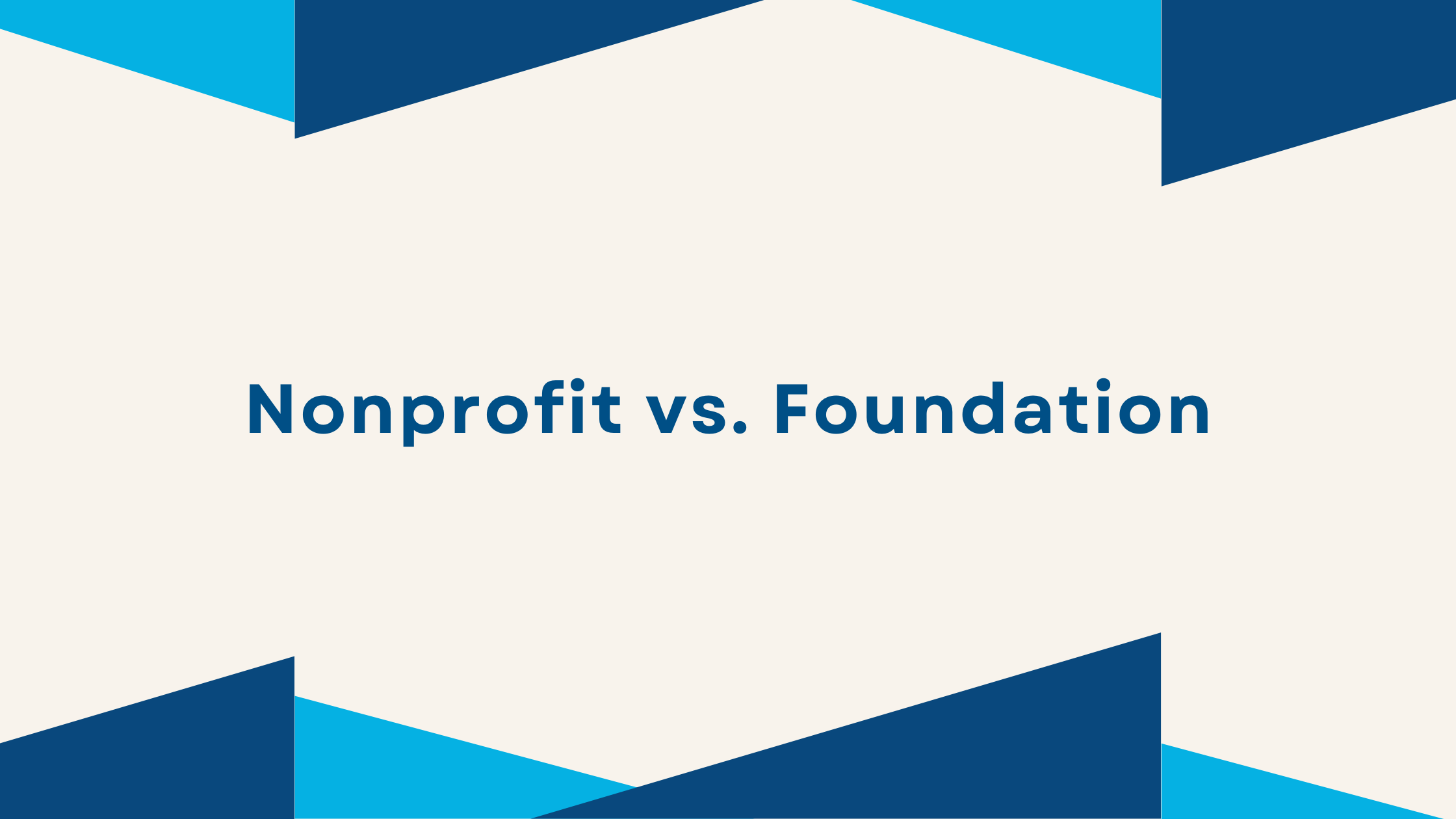Nonprofit vs. Foundation—what’s the difference? While these terms are often used interchangeably, they have distinct structures, purposes, and legal requirements. Whether you’re looking to start a charitable entity, donate, or collaborate with one, understanding these differences is crucial.
This article will break down the key distinctions, benefits, and challenges of each to help you make informed decisions.
Nonprofit Resources
The Charity Charge resource hub is dedicated to providing tips, tools, and information to help your nonprofit create and grow a modern organization. Learn more
What is a Nonprofit?
A nonprofit organization (NPO) is a broad category of organizations that operate for public or social benefit rather than profit. Unlike businesses, nonprofits reinvest any surplus funds back into their mission instead of distributing them as income to members or shareholders.
Key Characteristics of a Nonprofit
- Mission-Driven: Focuses on a social, educational, religious, or charitable purpose.
- Revenue Sources: Funded through donations, grants, membership fees, and fundraising events.
- Tax-Exempt Status: Many qualify for 501(c)(3) tax exemption under the IRS (in the U.S.), meaning they don’t pay federal income tax.
- Governance: Managed by a board of directors or trustees.
Examples of Nonprofits
- Charities like the American Red Cross
- Religious organizations like churches, mosques, and synagogues
- Educational institutions like private universities and scholarship programs
What is a Foundation?
A foundation is a type of nonprofit organization, but it is primarily designed to provide financial support to other nonprofits or causes. Foundations typically have an endowment—a large pool of funds donated by individuals, families, or corporations—used to fund grants and philanthropic activities.
Key Characteristics of a Foundation
- Funding Source: Generally funded by a single source, such as an individual (family foundation) or corporation (corporate foundation).
- Grant-Making Role: Distributes funds to other nonprofits, research institutions, or social initiatives.
- Tax-Exempt Status: Also qualifies for tax exemption under 501(c)(3) but follows different regulations.
- Governance: Often controlled by a small group of founders or trustees.
Examples of Foundations
- Bloomberg Philanthropies (Supports arts, education, the environment, government innovation, and public health)
- Ford Foundation (Promotes human rights and social justice)
- The Rockefeller Foundation (Focuses on health and sustainable development)
Nonprofit vs. Foundation: Key Differences
| Feature | Nonprofit Organization | Foundation |
|---|---|---|
| Purpose | Provides services directly to the public | Funds and supports other nonprofits |
| Revenue Sources | Donations, grants, membership fees, services | Endowments, investments, corporate/family donations |
| Tax-Exempt? | Yes, if it qualifies under 501(c)(3) | Yes, but with different regulations |
| Governance | Board of directors | Trustees or family members |
| Examples | Red Cross, Salvation Army | Bill & Melinda Gates Foundation |
Types of Foundations
There are two main types of foundations:
1. Private Foundations
- Funded by a single source (family, individual, or corporation).
- Must distribute a minimum amount annually to maintain tax-exempt status.
- Often do not actively run programs but give grants to charities.
- Example: Ford Foundation
2. Public Foundations
- Receive funding from multiple sources, including the general public.
- Act more like nonprofits by conducting direct charitable work.
- Example: Community Foundations that support local charities.
Choosing Between a Nonprofit and a Foundation
If you’re thinking about starting a charitable entity, your choice depends on your goals:
- Want to provide services directly to people? → Start a nonprofit.
- Want to fund other nonprofits and projects? → Establish a foundation.
FAQs
Can a foundation be a nonprofit?
Yes, all foundations are nonprofits, but not all nonprofits are foundations.
Do foundations make a profit?
No, foundations do not operate for profit. They use endowments or donations to support charitable causes.
Can a nonprofit also be a foundation?
Yes, some nonprofits set up foundations to fund their programs (e.g., a hospital having a foundation for research grants).
Are donations to nonprofits and foundations tax-deductible?
Yes, donations to both are generally tax-deductible if they have 501(c)(3) status.
Do foundations need to follow nonprofit regulations?
Yes, but they have stricter rules on grant distributions and financial reporting.
While both nonprofits and foundations serve charitable purposes, their structures, funding sources, and functions differ significantly. Understanding these differences can help individuals and organizations donate wisely, start the right type of entity, or collaborate effectively in the nonprofit sector.





